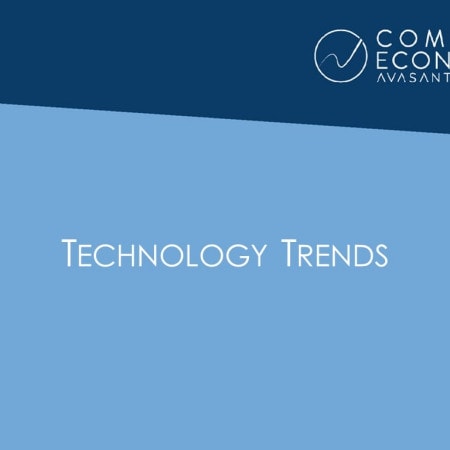-

Microsoft Vista Migration Still Slow in 2008
Most organizations are still not rushing to deploy Microsoft Vista in 2008, according to preliminary results from our annual survey of technology trends. In this report, we examine adoption levels and deployment plans for Vista by organization size. We also assess the improvements that Service Pack 1 brings, and we compare Vista's adoption trends to those of desktop Linux, which is one alternative to Microsoft's platform. We conclude with our perspective on issues surrounding Vista and the reason for slow adoption. (5 pp., 5 figs.)[Executive Summary]
June, 2008
-

Windows and Linux Data Centers Lag Behind Unix in Realizing Economies of Scale
In this article, we examine total data center spending per server OS instance across data centers of varying sizes. We break down these metrics for Windows, Linux, and Unix systems. Interestingly, Unix data centers experience significantly better economies of scale than Windows or Linux shops. We report the metrics and examine the reasons for the greater efficiencies in large Unix shops compared to other operating systems. (3 pp., 1 fig.)[Executive Summary]
September, 2007
-

Microsoft Vista: Strong Capabilities but Weak TCO
Many IT organizations are considering the risks and returns inherent in upgrading to Microsoft's new desktop operating system. Along with Vista's new capabilities come new demands on the IT organization. This analysis presents an overview of Vista's capabilities, some of its features that may be difficult for users to adjust to, its cost effectiveness, and our recommendations for migrating to Vista. (5 pp., 2 figs.)[Executive Summary]
April, 2007
-

Comparing Linux and Windows as Server Operating Systems
Both Microsoft Windows and Linux are increasing their market share as server operating systems. But what are their relative advantages? To find out, Computer Economics conducted a survey of system administrators and IT managers that have experience with both operating systems. The results are mixed, with Linux being preferred for its security, reliability, flexibility, scalability, and total cost of ownership and Windows taking the lead for ease of installation/administration and availability of support professionals. (11 pp., 10 figs.)[Executive Summary]
June, 2006
-

Windows 2000 vs. Linux Study: Not All Good News for Microsoft (Dec 2002)
Closer examination of IDC's Windows 2000 vs. Linux TCO study indicates there is no clear winner in this area.
December, 2002
-

Confronting the Windows 2000 Migration Dilemma
Regardless of how Microsoft resolves its antitrust problems with the Justice Department, Windows 2000 remains the key to future prosperity. In pushing the operating system, Microsoft is touting improved speed, stability, scalability, and security.
August, 2002

 Grid View
Grid View List View
List View